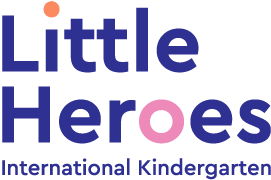Innovation in Early Childhood Education
In today's rapidly changing world, education is evolving to meet the needs of future generations. One of the most dynamic areas of transformation is early childhood education (ECE). Educators, researchers, and technologists are rethinking traditional methods to foster creativity, curiosity, and critical thinking in young children. In this post, we’ll explore how innovation is reshaping early childhood education, providing new opportunities for both learners and educators—while also highlighting the unique approach at Little Heroes Kindergarten, where we prioritize multilingualism alongside cutting-edge pedagogical techniques.
Play-Based Learning Approaches
Play has always been a central element of early childhood education, but now, there’s an increasing focus on structured play-based learning. Through play, children develop crucial skills like problem-solving, collaboration, and resilience. Modern classrooms are adapting to this by creating flexible, child-centered spaces where play and creativity are encouraged. Educators are trained to observe and guide rather than instruct, fostering autonomy and independent thinking.
STEM in Early Learning
STEM (Science, Technology, Engineering, and Math) education has traditionally been associated with older students, but innovators are now introducing STEM concepts to young children in ways that align with their developmental stages. From simple coding games to hands-on science experiments, preschoolers are being exposed to the building blocks of critical thinking and innovation.
For instance, robotics kits for preschoolers engage children with basic engineering concepts, fostering a love for science and problem-solving from an early age. These experiences build foundational skills that can spark interest in STEM careers later in life.
Social-Emotional Learning (SEL)
Emotional intelligence is as important as academic skills, and recent innovations in early childhood education are focusing more on Social-Emotional Learning (SEL). This approach helps children develop self-awareness, empathy, emotional regulation, and interpersonal skills.
Innovative SEL programs integrate storytelling, mindfulness, and collaborative activities to teach children how to manage their emotions, resolve conflicts, and build positive relationships. By nurturing these skills in the early years, educators help children develop the emotional resilience needed to navigate challenges throughout life.
Image by Jacky Law
Outdoor and Nature-Based Learning
Another exciting trend is the rise of outdoor and nature-based education. Forest schools, where children spend a majority of their time learning outdoors, have gained popularity in many countries. These programs emphasize the importance of connecting with nature, promoting physical health, creativity, and environmental awareness.
We work everyday to keep finding ways to bring nature into the classroom, through sensory gardens, nature-inspired play areas, and outdoor science experiments. This approach not only supports children’s cognitive and physical development but also encourages a lifelong appreciation for the environment.
Inclusive and Culturally Responsive Practices
Innovation in ECE also means creating more inclusive and culturally responsive learning environments. Educators are incorporating diverse books, materials, and experiences that reflect different cultures, languages, and perspectives. This approach ensures that all children see themselves represented in their learning and fosters respect and curiosity about other cultures.
At Little Heroes Kindergarten, we are proud to take this a step further by promoting multilingualism as a core part of our approach. Our children are immersed in a tri-lingual environment, learning Chinese, Finnish, and English. By exposing children to multiple languages from an early age, we nurture cognitive flexibility and cultural empathy, which research shows can boost problem-solving skills and creativity. Multilingual education also opens doors to diverse perspectives and opportunities, preparing children to be global citizens.
In our classrooms, language learning is integrated into daily activities through stories, songs, and play, allowing children to absorb languages naturally and joyfully. This immersive, multilingual environment not only strengthens communication skills but also fosters respect for different cultures—a value we hold dear at Little Heroes Kindergarten!
Parent Engagement and Community Involvement
Last but not least, another key area of innovation is how early childhood education involves parents and communities. Technology is playing a vital role here, too. Apps and platforms that facilitate communication between teachers and parents help keep families informed about their child’s progress, daily activities, and learning milestones. We are proud to be part of the TinyApp community and recently joined Elina’s Education planning companion too!
Did you like our post? Stay tunned for the upcoming updates during this fall and follow us on social media by clicking on the instagram & facebook symbols at the bottom of this page 👇


